Gall Bladder Stone Treatment in Mumbai
Are you experiencing abdominal pain, nausea, or digestive issues due to gallstones? Finding the right treatment at the right time can help you avoid serious complications. At One Stop Healthcare Solution, we help you find doctors in Mumbai specializing in gallstone treatment and connect you with the best hospitals offering advanced gallbladder treatment in Mumbai. Whether you need medication, non-surgical treatment, or gallbladder removal surgery, we guide you to trusted healthcare services in Mumbai for safe and effective care.
Latest Procedure
Expert Surgeons

Find the Best Gall Bladder Stone Specialist in Mumbai
Experiencing pain or discomfort due to gallbladder stones? Issues like gallstones, infections, or bile duct problems can significantly impact your daily life. Symptoms such as severe abdominal pain, nausea, bloating, and digestive discomfort should never be ignored, as untreated gallbladder conditions can lead to serious complications. Finding the right gall bladder stone specialist in Mumbai is essential for accurate diagnosis, effective treatment, and long-term relief.
At One Stop Healthcare Solution, we help you find doctors in Mumbai who specialize in gallstone treatment and advanced gallbladder care. Our network includes leading hospitals and specialists known for their expertise in laparoscopic gallbladder removal surgery and other minimally invasive treatments. Whether you are looking for the best gallbladder treatment in Mumbai or need guidance on the gallbladder removal surgery cost in Mumbai, we provide access to top-tier healthcare services in Mumbai to ensure safe and effective care.
From initial consultation to post-treatment recovery, our specialists develop personalized care plans tailored to your needs. Whether you require gallbladder stone removal surgery, medical management, or lifestyle guidance, our experts prioritize your comfort and safety while using cutting-edge techniques to ensure faster recovery with minimal downtime.
If you’re searching for a doctor near me in Mumbai for gallstone treatment, look no further. Contact One Stop Healthcare Solution today to find hospital in Mumbai and get connected with the best gall bladder stone specialist near you. Your journey to a pain-free, healthier future starts here!
Request a Call Back
Gall Stone Treatment and Surgery: Things To Know
Gallstones are solid particles that form in the gall bladder, a small organ located beneath the liver. The gall bladder stores and releases bile, a digestive fluid that helps break down fats. Gallstones can range in size from as small as a grain of sand to as large as a golf ball and are primarily made of cholesterol, bile salts, or bilirubin.
Gallstones form when the bile contains:
- Excess cholesterol: High levels of cholesterol in bile can crystallize and form stones.
- Too much bilirubin: A byproduct of the breakdown of red blood cells, excess bilirubin can contribute to stone formation.
- Imbalance in bile composition: When the gall bladder doesn’t empty bile properly, it can lead to stone formation.
1. Cholesterol Gallstones
Description: The most common type, primarily made of cholesterol.
Appearance: Usually yellow-green in color.
Cause: Formed when bile contains too much cholesterol or when the gall bladder doesn’t empty properly.
Risk Factors: Obesity, high-fat diets, rapid weight loss, and diabetes.
2. Pigment Gallstones
Description: Made of excess bilirubin, a substance produced during the breakdown of red blood cells.
Appearance: Dark brown or black stones.
Cause: Often associated with liver disease, bile duct infections, or blood disorders such as sickle cell anemia.
3. Mixed Gallstones
Description: A combination of cholesterol, bilirubin, and calcium salts.
Appearance: Vary in size and color.
Cause: Can result from multiple factors, including infection and bile imbalance.
Prevalence: Less common than cholesterol gallstones.
Gallbladder stones, also known as gallstones, can sometimes be silent with no noticeable symptoms. However, when they cause blockages or irritation, they may trigger the following symptoms:
1. Abdominal Pain (Biliary Colic)
- Sudden, intense pain in the upper right abdomen or the center of the abdomen.
- Pain may last from a few minutes to several hours.
2. Nausea and Vomiting
- Common during gallstone attacks, especially after consuming fatty meals.
3. Indigestion or Bloating
- Persistent discomfort, especially after eating greasy or heavy foods.
4. Back or Shoulder Pain
- Pain radiating to the back or right shoulder blade.
5. Jaundice (Yellowing of Skin and Eyes)
- Occurs if gallstones block the bile ducts, leading to a buildup of bile in the bloodstream.
6. Dark Urine or Pale Stools
- Signs of bile duct obstruction, indicating a more severe condition.
7. Fever or Chills
- May indicate an infection, such as cholecystitis, requiring immediate medical attention.
8. Digestive Issues
- Loss of appetite, heartburn, or flatulence after meals.

Gallbladder Removal Surgery Cost in Mumbai
The cost of gall bladder removal surgery (cholecystectomy) in Mumbai typically ranges from ₹40,000 to ₹1,50,000, depending on factors like the type of procedure (laparoscopic or open surgery), the hospital, the surgeon’s expertise, and additional expenses such as diagnostic tests, medications, and room type. Laparoscopic surgery, being minimally invasive, is the preferred method and usually costs more than open surgery. Many health insurance plans cover gallbladder removal, so it’s advisable to check with your provider for coverage details. For personalized guidance and cost estimates, consult a reliable healthcare service like One Stop Healthcare Solution.
Gall Bladder Stone Treatment & Removal Surgery Options
01

Non-Surgical Treatment (For Mild Cases)
This is typically recommended for mild cases involving small, cholesterol-based gallstones. Bile acid medications may be prescribed to dissolve the stones, though the process tends to be slow and may not be suitable for larger stones. Additionally, adopting a low-fat diet can help reduce symptoms and prevent the formation of new gallstones, making this approach ideal for individuals without significant complications.
02
Laparoscopic Cholecystectomy (Minimally Invasive Surgery)
Laparoscopic cholecystectomy, the preferred option for most patients, offers several key benefits, including shorter recovery times and fewer complications. This minimally invasive procedure involves small incisions, through which the gallbladder is removed using advanced techniques. It enables faster return to normal activities and results in minimal scarring, making it a popular choice for many patients seeking effective and efficient treatment for gallbladder stones.
03

Open Cholecystectomy (Traditional Surgery)
Open cholecystectomy, or traditional surgery, is typically performed when laparoscopic options are not feasible due to large gallstones or severe inflammation. This procedure requires a larger incision, resulting in a longer recovery period and a higher risk of complications. It is often recommended for more complex cases that require extensive removal of the gallbladder.
04

ERCP (Endoscopic Retrograde Cholangiopancreatography)
ERCP (Endoscopic Retrograde Cholangiopancreatography) is used to remove gallstones from the bile ducts when they are blocking the ducts. It can be performed in combination with gall bladder removal or as a standalone procedure when surgery is not required. This method is effective in relieving symptoms and addressing bile duct blockages without the need for complete gall bladder removal in certain cases.
Why Choose us for Gallbladder Stone Treatment in Mumbai?
At One Stop Healthcare Solution, we make it easy to find doctors in Mumbai and connect with top hospitals for gallstone treatment. Here’s why patients trust us:
- Expert Guidance: We connect you with top gall bladder stone specialists in Mumbai.
- Trusted Hospitals & Clinics: We help you find hospital in Mumbai offering advanced healthcare services.
- Personalized Assistance: We assist in booking doctor consultations, diagnostic tests, and surgical procedures.
- Affordable Treatment Options: Get a breakdown of the gallbladder removal surgery cost in Mumbai and choose a budget-friendly option.
- Comprehensive Care: From diagnosis to recovery, we support you at every step.
With dedicated support throughout your journey, we aim to make the process as smooth and hassle-free as possible. Trust us for expert care and a seamless recovery, so you can get back to a healthier, more active life with confidence.
Experienced Specialists
State-of-the-Art Technology
Personalized Care
Comprehensive Services
Patient Comfort and Safety
Schedule Your Consultation Today!
Looking for the best gall bladder stone treatment in Mumbai? We’re here to help.
Frequently Asked Questions
Small, asymptomatic gallstones may not cause problems and remain unnoticed. However, once symptoms develop, gallstones usually do not go away on their own and may require medical treatment.
If left untreated, gallstones can lead to complications such as inflammation of the gallbladder (cholecystitis), infection, bile duct obstruction, or pancreatitis. It’s important to seek medical advice if symptoms appear.
Certain factors increase the risk of developing gallstones, including:
- Being overweight or obese
- Eating a high-fat or high-cholesterol diet
- Rapid weight loss
- Pregnancy
- Diabetes
- Family history of gallstones
- Diagnosis and Treatment
Gallstones are typically diagnosed using imaging tests such as:
- Ultrasound: The most common method to detect gallstones
- CT scan or MRI: Used for more detailed imaging
- Blood tests: To check for infections or liver issues
Surgery is recommended if:
- The gallstones cause recurrent pain and digestive issues
- There is inflammation or infection in the gallbladder
- The stones block the bile duct
Limit high-fat, fried, and processed foods such as:
- Fast food
- Full-fat dairy products
- Red meat
- Sugary and refined foods
Most patients recover within 1-2 weeks after laparoscopic surgery and about 4-6 weeks after open surgery.
Initially, you may need to avoid fatty, greasy, or spicy foods. However, most people can return to a normal diet over time.
While rare, complications may include:
- Infection
- Bile leakage
- Digestive issues like diarrhea (usually temporary)
Most people can resume light activities within a week after laparoscopic surgery and return to work in about 10-14 days. Heavy lifting should be avoided for a few weeks.
Our Specialties

Proctology
Care for conditions like hemorrhoids, anal fissures, and other rectal issues. It includes diagnosis, minimally invasive procedures, and follow-up care for comfort and recovery.
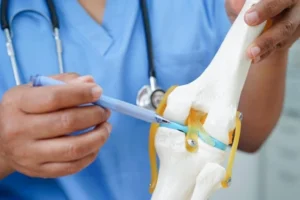
Orthopedic Treatment
Treatment for joint pain, bone fractures, and muscle problems. It includes tests, non-surgical options, and surgical treatment if needed.

ACL Injury
Care for ACL injuries with treatments like physical therapy, arthroscopic surgery, and ligament reconstruction. It includes diagnosis, personalized treatment plans for full recovery.

Spine Surgery
Surgery for back problems like herniated discs and scoliosis. It includes consultations, surgery, and follow-up care for recovery.
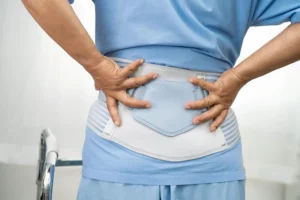
Hip Replacement
Advanced surgery options to fix hip pain and improve mobility. It includes pre-surgery care, surgery, and post-treatment support.

Ligament Tear
Treatment options for torn ligaments, including surgery and therapy. It includes diagnosis, surgery, and rehabilitation for healing.
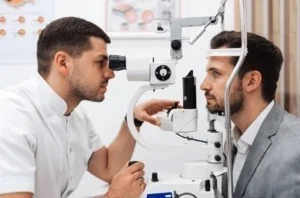
Ophthalmology
Treatments for vision problems, eye diseases, and regular check-ups. It includes eye exams, treatments, and surgeries for better eye health.
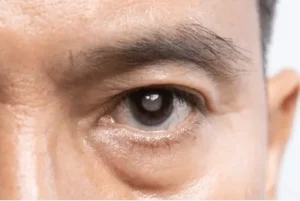
Cataract Surgery
Safe cataract removal surgery for clearer vision. It includes eye tests, surgery, and post-surgery care to help you see better.

LASIK
LASIK surgery for clearer, glasses-free vision. It includes eye tests, laser treatment, and post-surgery care.
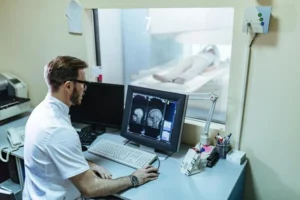
Oncology
Treatment for different types of cancer, including surgery, chemotherapy, and radiation. It includes diagnosis, treatment plans, and patient support.
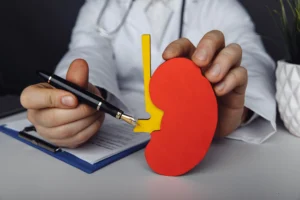
Kidney Stones
Treatment for kidney stones, including laser surgery and other methods. It includes diagnosis, treatment, and recovery support.

Hernia
Care for hernia conditions with treatments like laparoscopic surgery, open repair, and mesh repair includes diagnosis, treatment plans, and post-surgical support for a smooth recovery.

Varicose Vein
Treatments like laser therapy, sclerotherapy, and surgery to improve circulation and ease discomfort. It includes diagnosis, treatment plans, and support before and after treatment.

Knee Replacement
Experience advanced knee replacement surgery with our expert orthopedic surgeons. Trust us for comprehensive care and personalized treatment plans tailored to your needs.
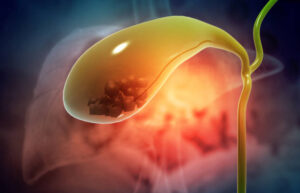
Gall Stone Treatment
Our specialized team offers effective solutions for gallstones, including minimally invasive procedures to remove stones and alleviate discomfort.

Health Checkup in Mumbai
We provide comprehensive health checkup in Mumbai with thorough evaluations, including essential screenings and diagnostic tests, to detect potential health issues early.

Home Health Care Service
Enjoy professional healthcare in the comfort of your home, including nursing care, physiotherapy, and medical assistance.

